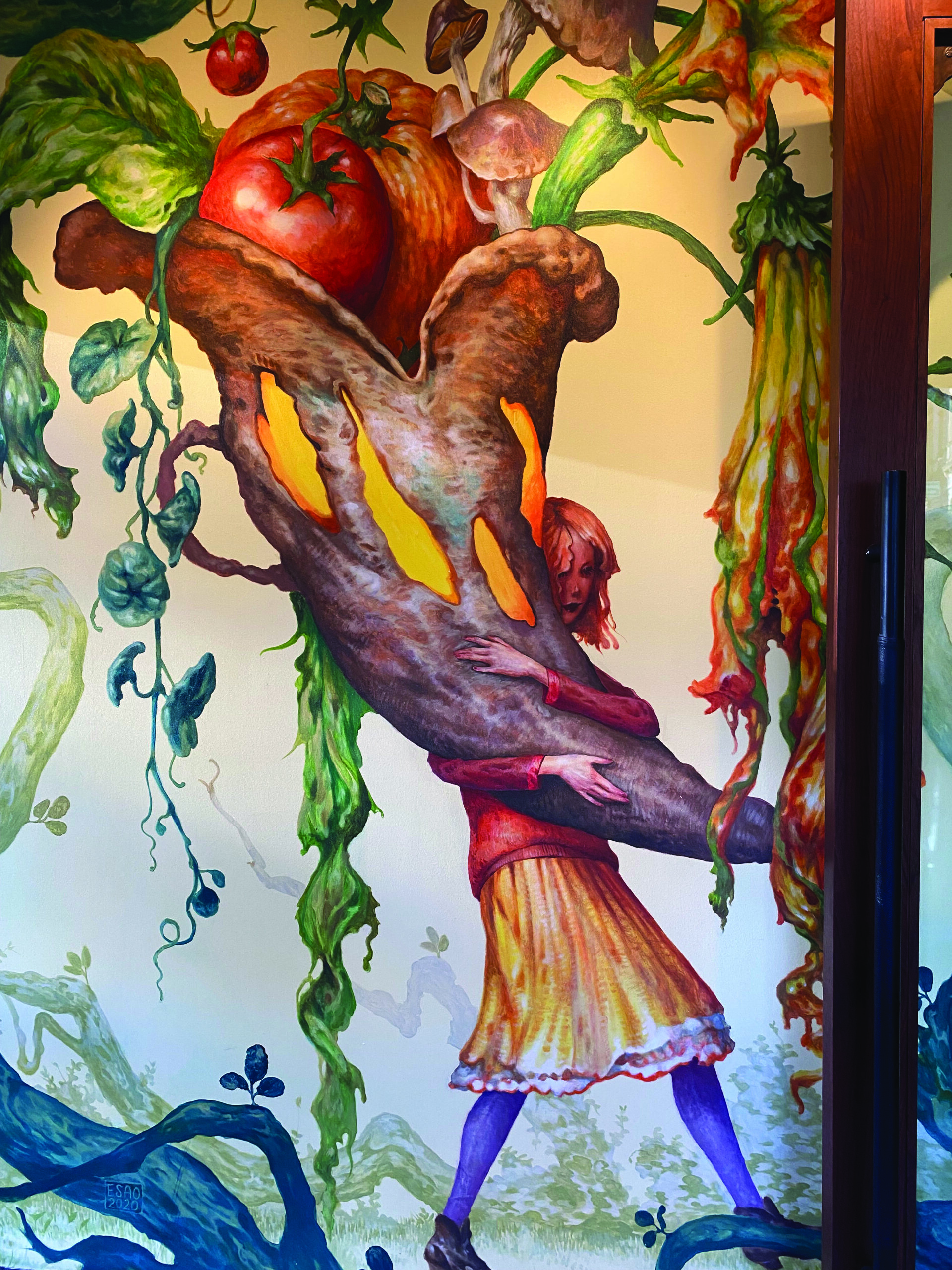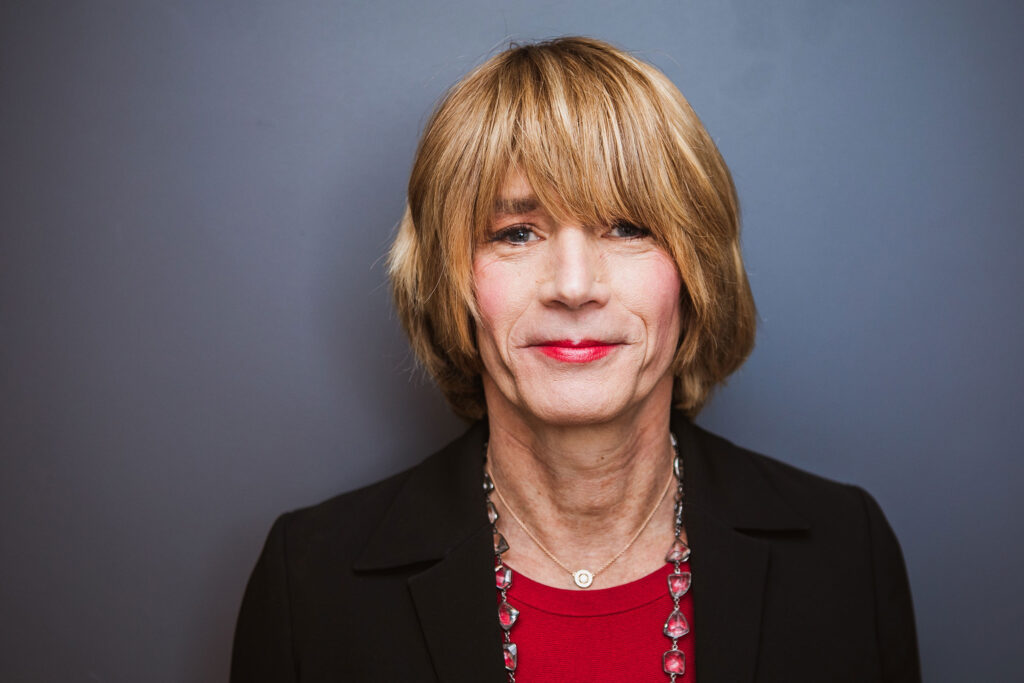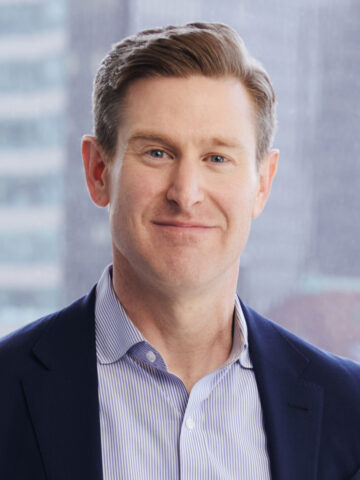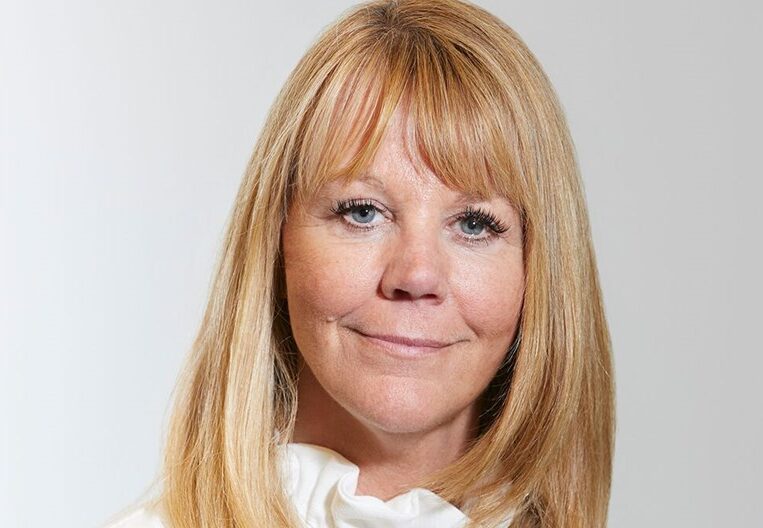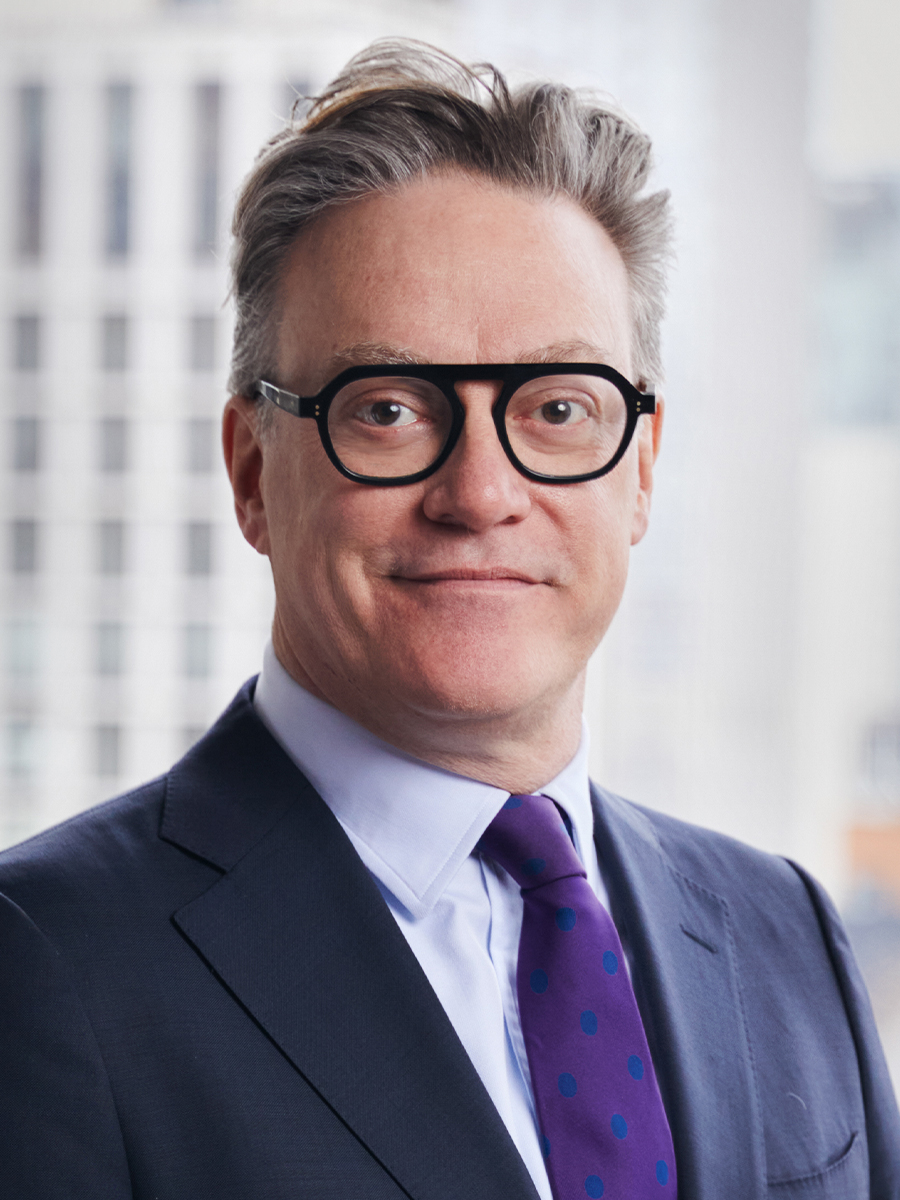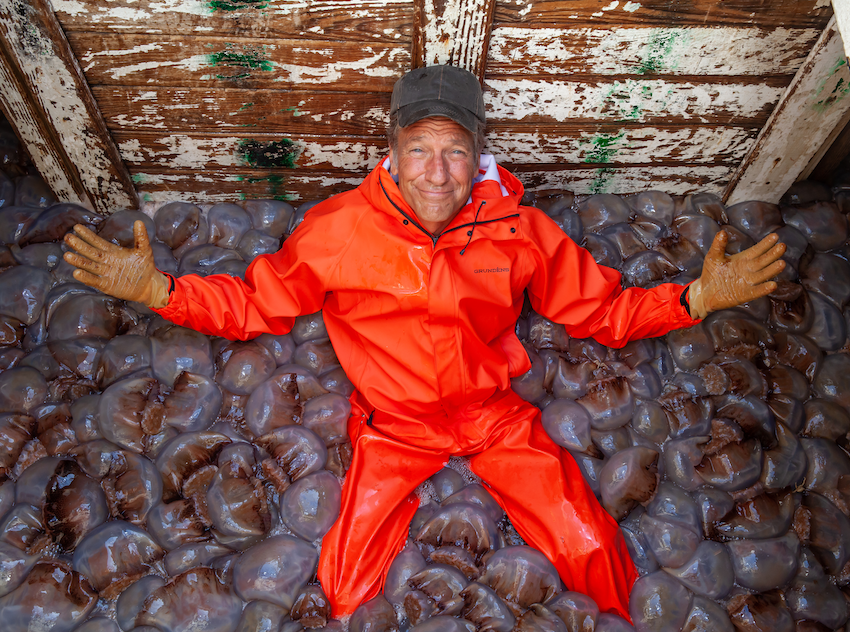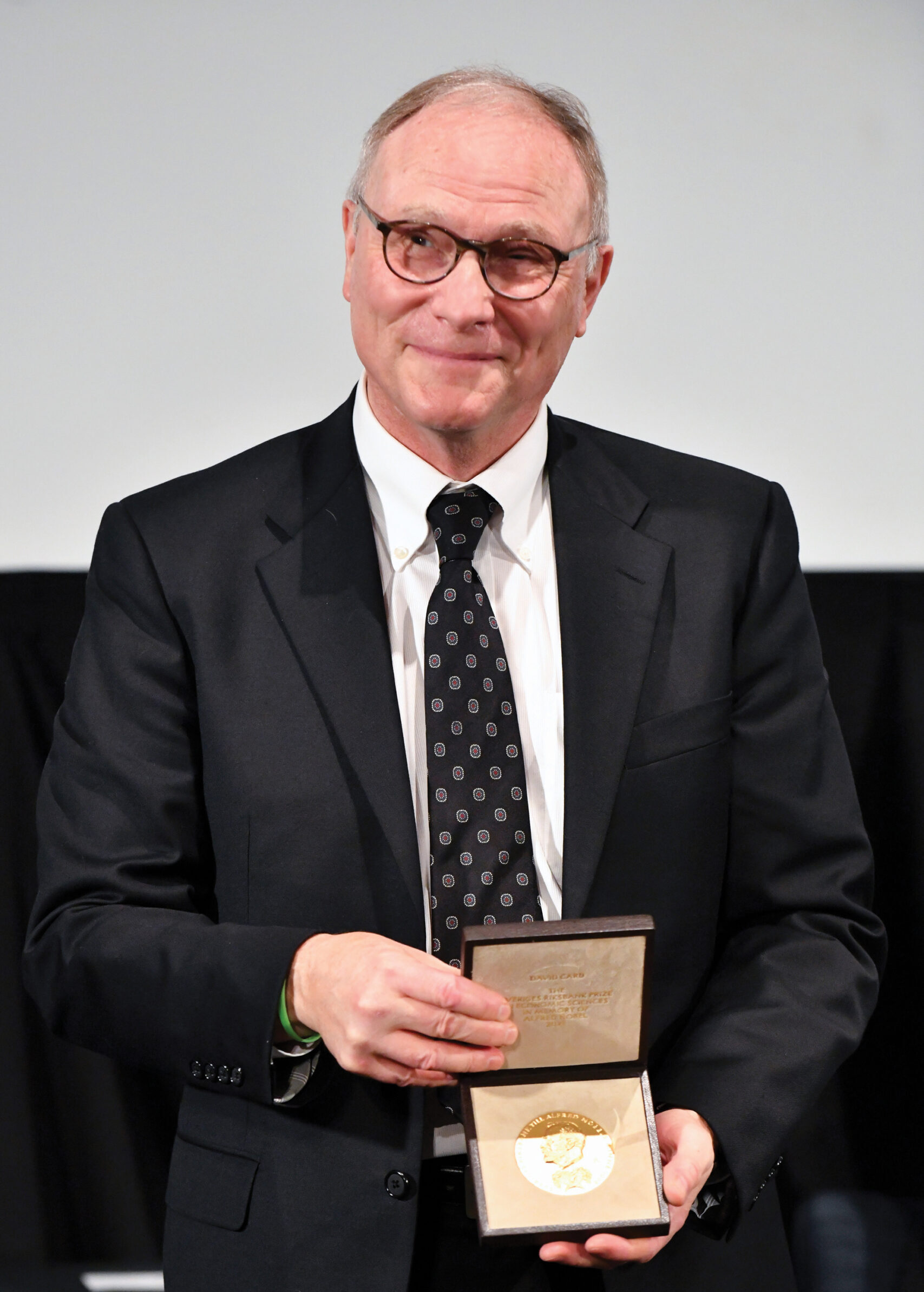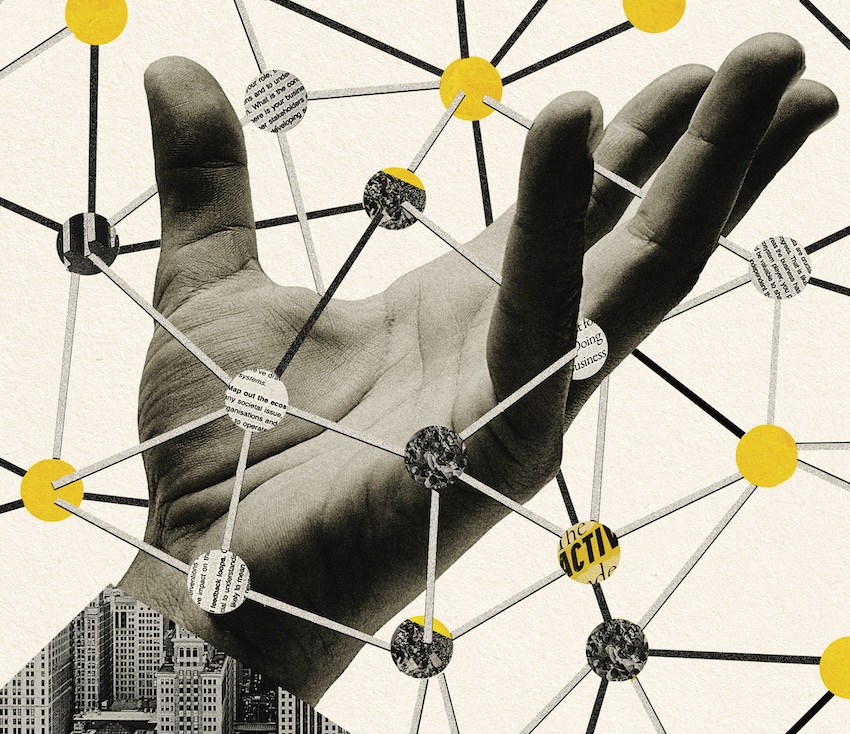A conversation with Goldman Sachs Managing Director Maeve DuVally.
“I am keenly aware that it’s never good when the flak becomes the story,” Maeve DuVally, a Managing Director in Goldman Sachs’ corporate communications department, wrote on the company’s blog. When DuVally published that piece in the summer of 2019, it was because she, the flak, had become the story—and, contrary to prevailing industry wisdom, it was good.
DuVally’s decision to come out as transgender at work—“On the Friday before Memorial Day, I left Goldman Sachs as Michael and on the Tuesday after came into work as Maeve,” as DuVally wrote—had been the focus of a widely read New York Times article. The piece offered an intimate, thoughtful look at DuVally’s decision, and detailed how her colleagues and company had responded with support and kindness. “I generally have very little respect for Wall Street and its ilk …” the top comment on the article read, “but I was truly touched by this story.”
DuVally is a nearly 20-year veteran of financial communications, and before joining Goldman in 2004, had worked as an English teacher, translator, equities research analyst and journalist in Japan.
In a February webinar hosted by Brunswick Partners Brendan Riley, Andrew Williams and Jeanmarie McFadden, Maeve DuVally shared her story, answered questions from Brunswick colleagues around the world about being better LGBTQI+ allies, and described what, to her, it means to be a woman.
Brendan Riley: The woman we’re talking with here today has had quite the journey—Maeve, can you give us a sense of what that’s been like?
My story’s a little bit different. For the vast majority of my life I thought I was your everyday heterosexual, cisgender white male who was unhappy—not that all white males like that are unhappy—but I was.
And as I was getting ready for a party one night in October of 2018, I had this sudden urge to wear makeup. That’s really how it all began for me. Over the course of the next week, just from that urge to wear makeup, I got to a place where I knew I had wanted to be a woman all my life.
I came out immediately in my private life. But, for whatever reason, I wasn’t comfortable coming out yet at Goldman Sachs. And I waited six, seven months, and I was in this kind of—I’m an Irish Catholic, so I’ll use the term “purgatory”—there.
And in April of 2019, I attended a panel at Goldman Sachs about how to make the workplace more welcoming for transgender people. I decided to come out at work then, and I subsequently came out in May of 2019. And coming out at work was probably one of the happiest days of my life, and I’ve never looked back.
BR: And a month later, that New York Times article was published.
One of the things that you do before you come out as a transgender person is you think about all the internal and external constituencies that will be impacted, so: “My appearance is going to change, my name’s going to change, my pronouns are going to change.” It’s best practice to let people you work with, internally and externally, know in advance this is going to happen.
And obviously for me, the most important external constituency is journalists. I drew up a list of maybe a dozen journalists that I’ve worked with the most, and I told them that this was happening in several weeks. We knew somebody might want to do a story about it, and that ended up being The New York Times.
The reporter for that story, Emily Flitter, trailed me on my first three days of being out in the office, and the story came out about a month later. I felt she did a marvelous job with it. If you read The New York Times’ transgender coverage, it’s thoughtful, kind and sophisticated, and they brought all that to my story.
BR: Was there a moment where you thought, “Oh, wow, this is really personal and I’m not sure that I want to go there?”
Definitely. I was having these intense personal experiences and there were points where I didn’t want a reporter around, I just wanted to experience that by myself. While I generally embraced it, I did have a couple of moments where, yeah, I said, “What did I get myself into?”
The reporter wrote about a couple of faux pas that people made at Goldman Sachs. But I think it made the story better, it humanized the firm. We’re not all robots, people make mistakes. They’re getting used to this new reality.
BR: In our conversation ahead of this webinar, you said something that really took me by surprise: The trans community can be tough to work with. What did you mean by that?
The trans community is very, very broad. I try to keep track of some of the new terminology and what it means. Some members of our community can be quite unforgiving. If somebody misgenders them, or somebody uses their “dead name”—“dead name” means the name that you used to have—they can get upset.
I try to just correct people. And let me tell you about an embarrassing mistake I made. If I’m making a mistake, then how can I berate people who make an honest mistake?
I’d been out about six months at work, I was working on a really thorny story, and I had to go to the bathroom. I wasn’t really thinking—my mind was on this story—and I just wanted to get back to my desk as quickly as possible. So I walked into the men’s room.
I try to be thoughtful and kindly correct people if they make mistakes. We all make them. But some of my transgender brothers and sisters aren’t so forgiving. I think it might be better for everyone if they were.
Andrew Williams: There’s that tendency when people make mistakes to push them away. But my sense is that when people make a mistake, we have to hug them even closer. Yet there are also mistakes that are deliberately hurtful or offensive. How do you navigate those?
I really haven’t had many experiences where something’s been said directly to my face. It’s more things I hear when I’m walking by, and those things generally don’t bother me. I’ll tell you, there are times where people stare at me in a way that I don’t consider appropriate.
It’s fine to look at me in a “New York” way—you know, where people look at you and wonder what your story is, and then they turn away five or ten seconds later. That’s a very New York thing, and it happens all the time. But if somebody stares at me almost in a threatening way, I try and stare back.
Coming out at work was probably one of the happiest days of my life, and I’ve never looked back.
BR: That’s a very New York thing, too.
Yeah. And that may be a little bit dangerous. I don’t do that if I have the misfortune of riding the subway at 1am. [Laughs].
BR: There were so many intimate moments in The New York Times piece. Are there others that maybe weren’t in the piece that stick out for you?
For me, having come out so late in life, once I knew I was transgender, I was off to the races. My transition’s been pretty quick, I’ve done a lot in a short amount of time. But I’ll tell you, when I think back, every “first” I did was very nerve-wracking: the first time I went in and bought makeup for myself; the first time I went into a clothes store and bought women’s clothes; the first time I wore a dress.
With my coming out at Goldman Sachs—I work out a lot, and there is a gym in our building that I would go to most mornings. There is a women’s locker room and a men’s locker room. For weeks and weeks and weeks before coming out at work, I had this trepidation about going into the women’s locker room. You hear the rhetoric—you’re worried about being accused of being a voyeur. I actually came in over the weekend, a couple days before I came out, to do a “dry run” of the locker room, just try to be calm and get myself comfortable with it.
And I remember voicing this feeling I had to the person in human resources at Goldman who was my relationship manager. She was there to help me, be a liaison to the firm. And she said to me—and she was serious—“Anyone gives you shit, you send ’em to me and I’ll take care of ’em.” That support was amazing.
And then once I went to the gym for the first time, it was fine.
AW: How can we—as an organization, or as individuals—create inclusive spaces for transgender, nonconforming and nonbinary people?
Well, the first thing I’d say is you’re doing it now. These types of talks and discussions are so important. Creating opportunities for cisgender, heterosexual people to hear about our experiences, chances to educate and connect with people.
You never know who’s going to be listening and where they are at in their—I’ll use “journey,” it’s a good word, but it’s a cliché. And somebody may actually decide to do something because they identify with what I’m saying.
The most important thing that happened when that New York Times story came out is, having been a journalist, and having been in this profession for a while, I already knew the power of storytelling. But The New York Times is an incredible platform, and the influence that had on my life has been in some ways life-altering.
In particular, there are about a half-dozen transgender people in various stages of coming out, and also college students who are out but were afraid of interviewing as openly transgender in corporate America. They reached out to me. We entered into a dialogue, and I was able to share more of my experiences with them.
I think there’s value in people knowing that corporate America, particularly in the technology and financial services sectors, is becoming more welcoming of transgender people.
Because I’m not sure if everyone knows this, but transgender people are more likely to come from broken homes, to not have money, there’s more addiction and alcoholism. A lot of transgender people have a lot going against them. It’s important to show them there are success stories; there are ways people can climb the ladder.
I think there’s value in people knowing that corporate America, particularly the technology and financial services sectors, is becoming more welcoming of transgender people.
BR: I’ll get a little personal here. I’m an alcoholic and addict who is in recovery. That’s a big part of who I am, and it’s a piece of my diversity puzzle. And when you and I were catching up, we realized we shared that. If you’re open to it, can you talk about the role recovery played in this chapter of your life?
I’m glad you brought this up. If you go back and look at The New York Times story, there’s a line in there that says, “I drank too much in the past.”
I spoke a little bit earlier about The New YorkTimes being very sensitive in their coverage. The day before the story came out online, the reporter called me and said her editors thought something was missing from my background and she wanted to talk to me about it. I confided in her that I was an active alcoholic for most of my life, but then I said, “You can’t print that.”
I talked to some people in my recovery network and we came up with an alternative. I’m comfortable saying publicly now that I’m an alcoholic, but I wasn’t then.
I got sober four years ago, and I realized I was transgender three and a half years ago. That’s no coincidence. I think I was suppressing that part of myself for all those years.
Getting sober is the most important thing I’ve done in my life. Realizing I was transgender and coming out is the happiest thing I did in my life.
We talk a lot in recovery about how expectations can be dangerous. It’s something I learned in my own recovery and experiences: When we have expectations about things, they’re almost, by definition, self-limiting. Because most of the time our expectations are colored by our past. But there’s almost an infinite number of possibilities.
When I got sober, do you think I thought I might be transgender? I had not thought about it. But
getting sober opened up this whole new world of possibilities, and this reality of who I am became possible because I stopped drinking.
Jeanmarie McFadden: When you came out, you became a woman on Wall Street and, boy, I’ve been there for 30 years. It’s not easy. I’ve found at various parts of my career that senior women were not always welcoming to the junior women. How was that experience for you?
That’s a great question. I’m going to take a step back and talk about how I was received. Generally, the reception, especially after the story came out, was tremendous.
We’ve talked about how important acceptance is. When I was out there, active alcoholic, unhappy, male, I was on the periphery and I didn’t really have connection. This whole experience has allowed me to connect. I want to be accepted as a woman, I want to be accepted as a transgender person, I want to be accepted as a lesbian, I want to be accepted as a member of the broader LGBTQI+ community. And when I get the affirmation of that acceptance, that’s just the best feeling in the world, and particularly from women.
I’ve been at Goldman a long time, and I have some strong relationships with women who’ve been around a long time. But the types of conversations that we’ve had are nothing like the conversations we have now—they’ve been so much more personal.
I got sober four years ago, and I realized I was transgender three and a half years ago. That’s no coincidence. I think I was suppressing that part of myself for all those years.
JM: Do you find a different reaction in general when you travel out of the “New York bubble,” if you will, in the way people treat you?
Yeah. I traveled, actually, a fair amount during COVID, mostly within the country. I’ve done a few international trips before COVID, and there were certain places in the country and outside of the country, generally south from here, where I’m just a lot more wary and on guard.
And I need to do that. Because I’ve always been told I’m a little bit too naïve, innocent, trusting. The world isn’t really great for us out there.
So, yeah, I’ve had some—not “major” issues, minor issues, in other countries and in other parts of this country, and they’re not good. Because, quite frankly, I’m a little bit spoiled because I spend most of my time here.
BR: All right, Maeve, we have some questions from our colleagues that we’d love to hear you answer. “As a communications professional, what would you say are the most important messages from the transgender community that are largely misunderstood? And how would you clarify them?”
Really, the biggest one is just this myopic focus on the physical side of transition, and in particular the surgeries. I have this friend who said, “Once you had the operation, you became a woman”—uh, no, not really. So there’s still some work to do there.
The physical transition is important, obviously. I’ve had the surgeries. I like to wear nice clothes, do my hair, wear makeup. That’s important, it makes me feel feminine.
But it’s really the internal dynamic that’s the most important, it’s how you feel internally. That’s a big misconception.
BR: Are there things you did not like to hear after you came out—things that people intended to be encouraging but maybe came across a much different way? And possibly things that you got tired of hearing?
This one’s really good, and doesn’t come up in conversation, but it comes up in conversation among transgender people. There are a lot of people who say that me coming out at Goldman Sachs, and talking about my experience in venues like this, is “courageous and brave.”
But if this is who I am, and this is what I’m driven to do, and this is what I have to do to be myself, is it really “courageous and brave”?
I feel like this is what I’m programmed to do. This is what my current DNA is telling me to do, I don’t have a choice. I don’t really get offended when people say that, a lot of people say it. There are some people in the transgender community who get offended when cisgender people say that.
The physical transition is important, obviously … But it’s really the internal dynamic that’s the most important, it’s how you feel internally.
JM: I think there is probably a tendency—and I think it often comes from the right place—because you overthink what you’re saying, right? Because you want to be sensitive and say the right thing, as much as you don’t want to say the wrong thing.
This brings up another point: Women almost immediately knew how to compliment me on my appearance, but men sometimes had a problem with that. There’s a guy in our office who’s funny but a little uptight.
And I’ve noticed recently he’s giving me the perfect compliments. When I think back over the last couple of years he’s just experimented in little ways, he’s taken little risks. Maybe based on my reaction, or my expression, he’s just calibrated and learned.
And that’s an important lesson for everybody, I think: When you’re around diverse people and you’re not really sure what to say or how to act, you can take little risks. And over time you can learn from taking these little risks, and then you can interact in a fully comfortable way.
BR: A question from another colleague: “Hi there, young nonbinary kid here. It’s hard sometimes to know when and how to go about correcting instances of misgendering, especially repeated misgendering. Is there any advice you can give about bringing your authentic self in a way that’s ‘work-appropriate’?”
My thinking on this has evolved. Up until maybe about a half-year ago, I really only corrected people around me who I was going to be dealing with repeatedly.
I most frequently get misgendered on the phone. I don’t know if people realize this, but the physical side of transition just doesn’t stop just because you get the surgeries. I’m going to be doing hair removal for—I don’t want to think about for how long. I take voice lessons every week to feminize my voice. But back to the question.
I get misgendered on the phone by doctors and nurses that I call, for instance, and these are people I might only talk with once. In the past I didn’t bother correcting them.
Now I do—not just for me, but also for other transgender people they might talk to in the future. And so I politely say, “I’m sorry, I’m transgender, I’m a woman, I’d prefer not to be called, ‘Sir.’ I want to be called ‘Miss.’” So I do it in a polite way, and I do it to pretty much everybody now.
BR: Thank you so much for your time, for sharing your story and for doing so with such humor and honesty. A final question from a colleague: “What does being a woman mean to you?”
Wow. What a question.
I have a depth of feelings that I never knew I could have. Some of those feelings are happy feelings, some aren’t. But I’m grateful that I can experience that depth of feeling no matter what it is.
More from this issue
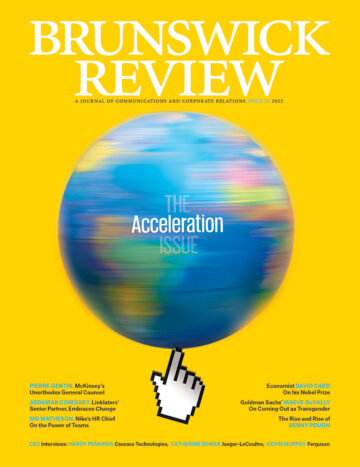
Acceleration
Most read from this issue
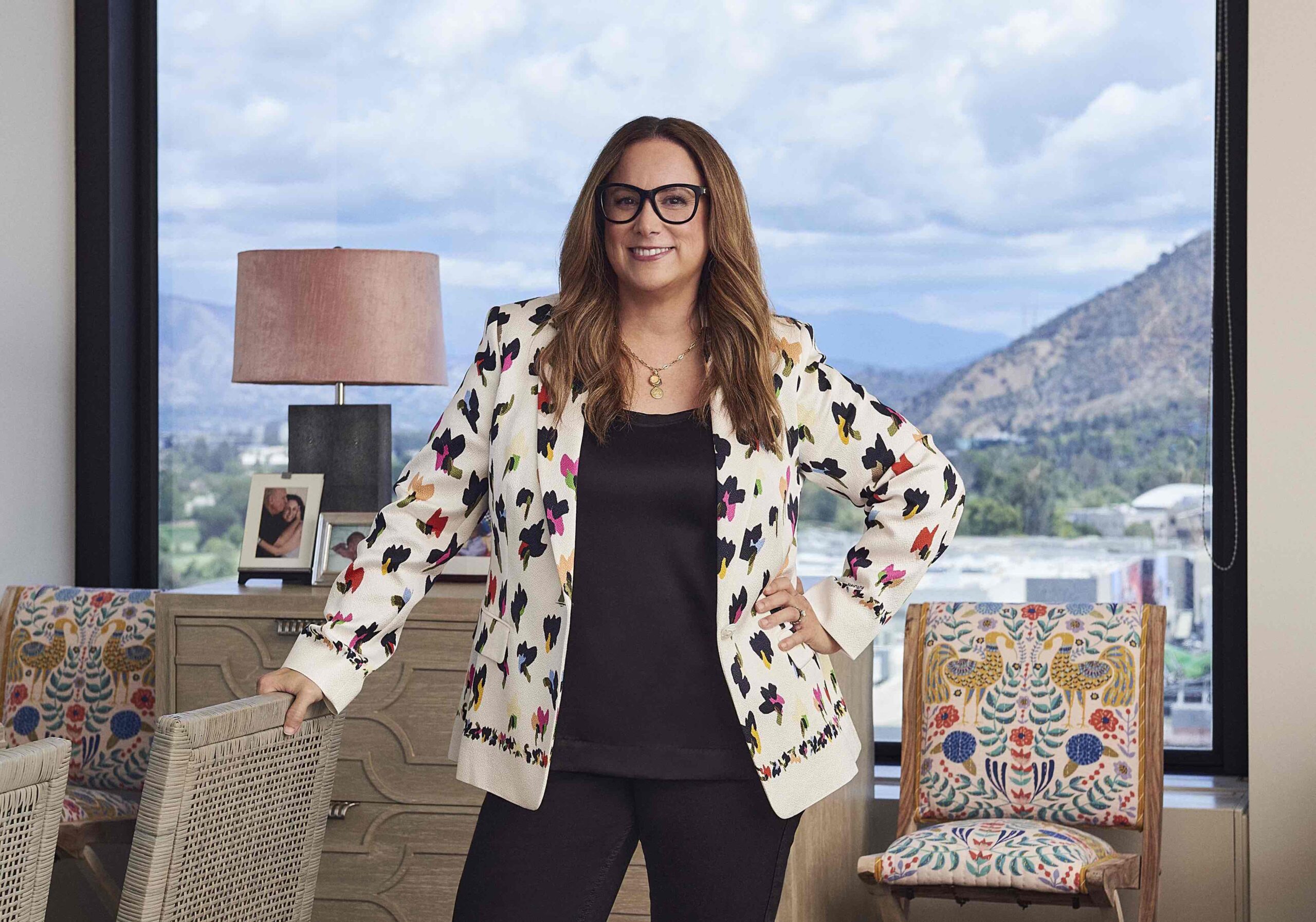
The Storyteller
